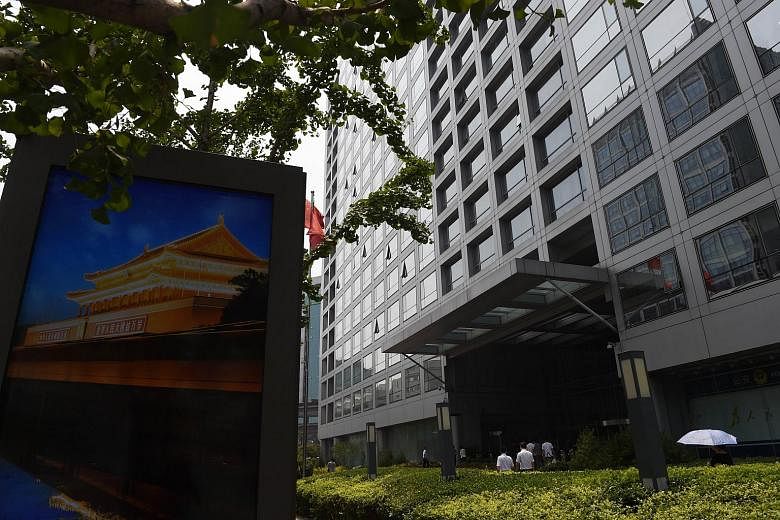NEW YORK (BLOOMBERG) - Mr Gao Xiqing, an architect of China's stock market and a former top regulator, said policymakers helped inflate equity prices and then mishandled the response to a collapse that wiped out US$4 trillion (S$5.48 trillion) in less than a month.
"I don't see so much of a problem in the reduction of the market value," Mr Gao, former vice-chairman of the China Securities Regulatory Commission, said at a panel discussion at the Council on Foreign Relations in New York. "I worry a lot more about the way it happened and how you deal with it."
A three-week, 32 per cent stock slump since mid-June prompted Chinese officials to allow more than 1,400 companies to halt trading, while banning major shareholders from selling stakes and restricting short selling. Officials also suspended initial public offerings and gave a government agency access to more than US$480 billion of borrowed funds to help finance equity purchases.
The unprecedented intervention raised concern that President Xi Jinping is backpedaling from his commitment to allow markets to play a larger role in the economy. The government shouldn't have let trading stop, Mr Gao said.
In the 12 months until mid-June, the Shanghai Composite Index more than doubled as state media and policy makers publicly encouraged investors to buy stocks. The rally was fueled by a five-fold surge in margin debt as investors borrowed money to finance the purchases.
Mr Gao said policymakers' endorsements of stock purchases helped drive prices to unsustainable levels. A lack of coordination between government agencies, including securities regulators and the China Banking Regulatory Commission, contributed the build-up of leverage, he said.
"We encouraged people to come to the market. It's more or less sponsored by the government," he said. "That, to me, is a concern."
A founding member of the Chinese securities commission, Mr Gao served as the general counsel and director of public offerings from 1992 to 1995 and then vice-chairman from 2003 to 2007. Mr Gao, who graduated from Duke University School of Law, now teaches at Tsinghua University in Beijing, after stepping down last year as the chief investment officer at China Investment Group, the nation's sovereign wealth fund.
While the Shanghai gauge has rebounded 18 per cent from its July 8 low, more than 500 companies remained suspended from trading as of Thursday, equivalent to 18 per cent of total listings.
Though the government is committed to reforms, there's a risk that the market will take a long time to resume normal operations, Mr Gao said.
"Every time we shut down something, usually during a crisis, you do it in one minute, then it takes forever" to reopen it, he said. "Why? When you open it, everyone has to sign off, and if any of them has some doubt about it, then you cannot do that."
Speaking on the panel, Mr Nicholas Lardy, a senior fellow at the Peterson Institute for International Economics, said top leaders in the financial sector are likely stick to their reform agenda despite the stock market turmoil.
China's current growth slowdown is welcome because it will help reduce "massive overinvestment" and the central bank may keep moderately tight monetary policy to rebalance the economy, he said.
Mr Li Daokui, a professor at Tsinghua University and a former adviser to the central bank, said that China's economic growth will bottom out by the first half of next year, as the housing market shows signs of recovery. Urbanisation, consumption and investment in environmental protection will be the new drivers for expansion, he said.
"We are reaching the bottom of a big U," Mr Li said.

